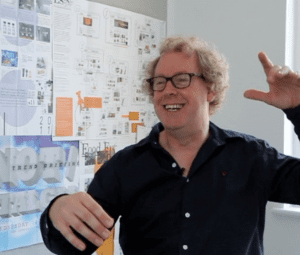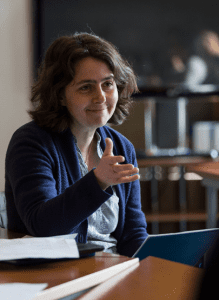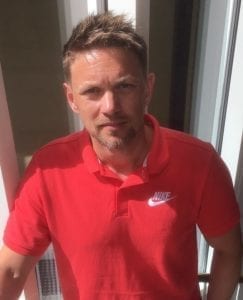Smart Justice Festival>>2019
Is Scotland ready for smart justice?
We invite you to join us for debate, discussion and dance at Smart Justice Fest ’19. Get ready to be inspired by innovation, challenged by fresh thinking and moved by our speakers from home and abroad. This year we’re hosting our event at the Drill Hall, Leith, Edinburgh, EH6 8RG on Monday 25 March 2019, 9.30-4pm. Headline acts include:
Peter Lovett AKA “Dr Dance”
Dr Peter Lovatt is a Dance Psychologist. He holds the academic post of Reader in Psychology at the University of Hertfordshire, where he set up the Dance Psychology Lab. Peter’s expertise is in experimental cognitive psychology and his work on memory, thinking, mood, language learning, problem solving, dance and Parkinson’s has been published in peer-reviewed academic journals. Peter is currently delivering a series of lectures on Performance (Dance) Psychology at the Royal Ballet School.
After overcoming a severe reading difficulty in his early twenties, Peter studied for a BSc (hons) in Psychology and English at the Roehampton Institute (degree awarded by the University of Surrey in 1993). In the same year he was awarded a national Science and Engineering Research Council (SERC) scholarship to study for an MSc in Neural Computation at the Centre for Cognitive and Computational Neurosciences at the University of Stirling (degree awarded 1994) and following this he was awarded a full university scholarship to study for a PhD at the University of Essex (completing in 1998).

Dr Kitty Stewart
Kitty’s research interests focus on children, disadvantage and inequality, in particular in the social security system, employment trajectories and early childhood. Recent projects include a systematic review of the causal relationship between household income and children’s outcomes, funded by the Joseph Rowntree Foundation, and an examination of stakeholder support for official changes to child poverty measurement in the UK.
She is currently Principal Investigator on a Nuffield-funded project examining peer effects in nursery education. She is also a core member of the CASE team which has tracked the UK government’s record on social policy, poverty and inequality over the last two decades. Kitty’s research on “Does income make a difference to children’s outcomes” is extremely interesting and relevant if we want to talk about “bridging the gap” of outcomes between families on a low income and those who are not.

Robert Nilsson
Born in Sweden and living in Finland since 2010, Robert was a Police Officer for more than 10 years. He worked mainly with young people and substance abuse problems. Up until very recently, he worked at the Youth Crisis Centre, a unit within the HelsinkiMissio. HelsinkiMissio, as well as being a campaigning organisation that supports inclusion, provides a range of family support initiatives, a youth crisis point providing preventative advocacy with young people, and intergenerational activities including the inspirational Albert’s Living Room which provides a meeting space for people experiencing or at risk of loneliness, whatever their age.

Plus special guests:
Google Digital Garage, Mindfulness, Discussing ACEs with James Docherty, Trauma Training Taster Session, Second Chancers Exhibition and What works – a recovery community in Ayrshire.
Tickets are available on a first-come-first-served basis. Book here: https://bit.ly/2TmMCGL
CJS respond to new Criminal Justice Social Work Figures
In response to the Criminal Justice Social Work figures 2016-17, released today, Karyn McCluskey, Chief Executive of Community Justice Scotland, said:
“There is great practice happening all across Scotland but we need to recognise it, evaluate it and scale it up.
We are dealing with complicated people, with the most complex needs, and we know they are more likely to change their lives if they’re supported in the community.
Figures can always be improved and we need to get better at looking at how health, addiction services and housing all contribute to people completing their sentence.
Scotland must strive for smarter justice based on the best evidence of what works for those who offend, their families and our communities.”
New national body Community Justice Scotland launches
(Edinburgh – 3 April 2017) – Today Community Justice Scotland begins its venture to prevent offending and promote world-leading standards of community justice across the country.
Working with a broad coalition of partners from the police, local authorities, health boards and courts to charities, community groups and alcohol and drug partnerships, the new public body will identify, develop and share innovation and expertise across the sector. It will also challenge received wisdom, shift attitudes and increase understanding about crime and justice.
Karyn McCluskey, Chief Executive of Community Justice Scotland, said;
“I have always believed that Scotland could lead the way in demonstrating it is possible to change citizens’ lives by preventing offending and victimisation.
We have the opportunity to become a country which enables those who have offended to repay their debt and contribute to society; building better lives for themselves, their families and for the community.
The task is great, the complexity overwhelming and the resilience required immense – but I know it is within our grasp.”
Justice Secretary Michael Matheson said:
“The launch of Community Justice Scotland is the next big step in our vision for a fairer, smarter justice system which allows people to pay their debt to society then be supported to make positive contributions to their communities.
“The new national body will support local partners to look at the best and most effective approaches to community justice, to make a real difference and help keep Scotland safe.”
Jean Couper, Chair of Community Justice Scotland said:
“Effective community justice not only allows individuals to repay their debt to society, it also reduces reoffending rates. It is imperative that Scotland leads the way in championing and adopting best practice in that field.
Community Justice Scotland will be ambitious in its objectives, innovative in its approach and tenacious as we strive, working with others, for a safer country and better lives for all.”
Scotland has one of the highest imprisonment rates in Western Europe. Almost two thirds of prison sentences are for less than six months, more than half of those leaving prison are reconvicted within a year of release – and more than 15% of the Scottish prison population are being held on remand. These short spells in custody do little to stop the cycle of offending – instead further disrupting already chaotic lives, as homes and jobs are lost and family ties severed. The whole community suffers as those leaving the prison estate quickly return, leaving more victims in their wake.
Community justice measures ensure that debts are paid, damage repaired, crime prevented and lives improved for everyone in the community – including victims of crime and those who offend. It encompasses both those serving community sentences and those returning to the community from prison. Less than a third of those on Community Payback Orders reoffend and overwhelmingly evidence shows that the right support, given at the right time can prevent further offending, improving lives for the better.
Contact: Community Justice Scotland Communications on 0131 244 1701
Notes to Editors
1. The main functions of Community Justice Scotland are laid out in the Community Justice (Scotland) Act 2016. Community Justice Scotland will promote the national strategy on community justice and monitor, promote and support improvement in, and keep the Scottish Ministers informed about, performance in the provision of community justice (and in particular, performance in relation to the achievement of the nationally determined outcomes). In addition CJS will promote public awareness of range of benefits arising from effective community disposals. Please find Community Justice (Scotland) Act 2016.
2. Please find full details of Community Justice Scotland’s board and staff.
